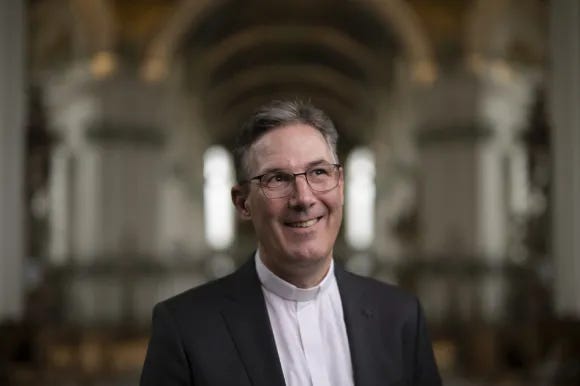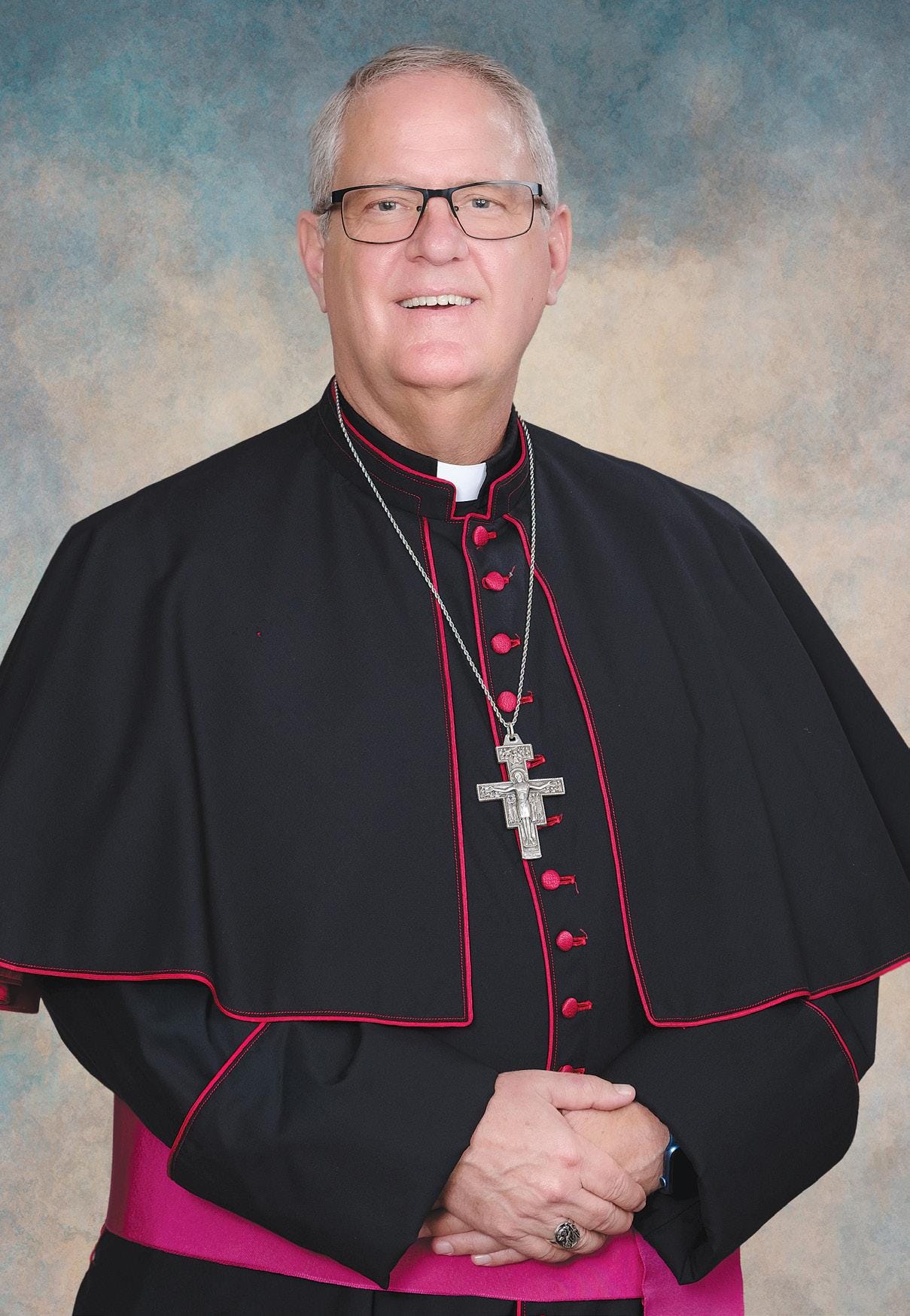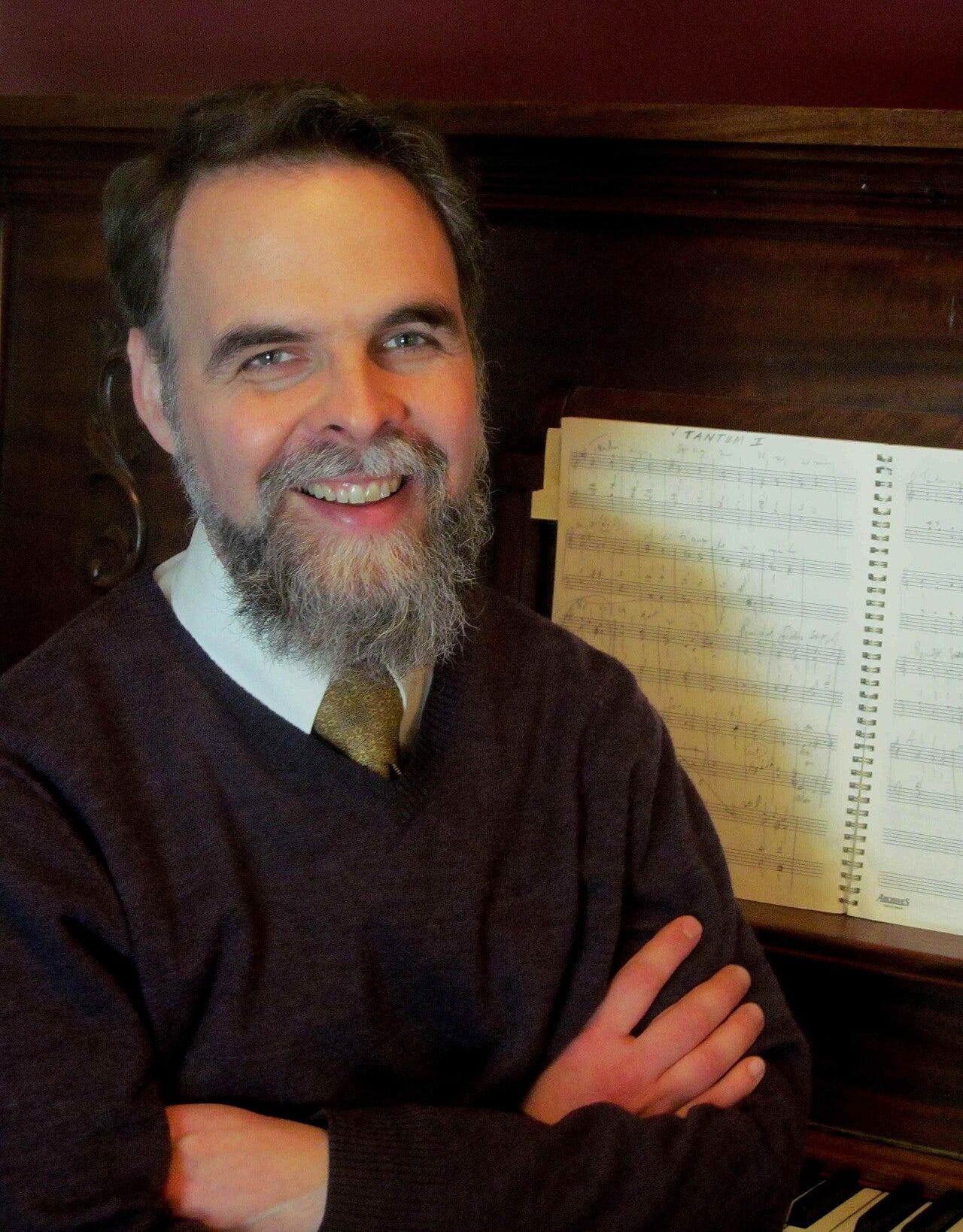Less than two weeks after traditionalist voices urged “prudence” and “patience” under Leo XIV, the Vatican has offered its answer in the form of two moves that speak louder than any encyclical.
First, Leo appointed Sister Tiziana Merletti as secretary of the Dicastery for Religious Life, placing her in a position of authority over male clergy: an unprecedented and symbolic rupture from the Church’s hierarchical tradition.
Now, Leo confirms the appointment of a bishop who publicly supports women’s ordination and same-sex blessings!
Meanwhile, the bishop of Charlotte, North Carolina, announced the final suppression of the Traditional Latin Mass in diocesan parishes, citing compliance with Traditionis Custodes. His timing, far from coincidental, suggests confidence that Leo XIV will not intervene.
So much for the honeymoon. So much for the tone.
The Bishop of St. Gallen: An Omen
Fr. Beat Grögli, now confirmed as Bishop of St. Gallen by Pope Leo XIV, has openly promoted positions that flatly contradict Catholic doctrine. In a diocesan questionnaire, he declared: “The ordained ministry can no longer be solely a male concern.” That is a direct challenge to the infallible teaching of the Church.
Grögli has also advocated for the blessing of same-sex couples, yet another rebellion against the moral law; something no pope or bishop has the authority to alter.
Yet Leo confirmed him. No one forced his hand. Even in Switzerland’s unusual episcopal election system, the pope retains the power to reject a candidate. He chose not to. That silence is an endorsement.
And it’s not just doctrinal confusion. The Diocese of St. Gallen already had a reputation for mishandling abuse cases. Now it will be led by a bishop who promotes heresy. One might ask whether Leo is rewarding the most compromised dioceses with the most radical leaders.
This is not an isolated mistake. It is a deliberate appointment. A signal. A scandal. And if anyone thinks this is just a local Swiss issue, they have not been paying attention. The program is global and the rupture is real.
Charlotte: A Sign of Things to Come?
Then came the letter from Bishop Michael T. Martin of Charlotte. On May 23, he announced that effective July 8, 2025, the Traditional Latin Mass will no longer be permitted in any diocesan parish. Only a single chapel, designated by the bishop, will be allowed to offer the old rite, and even then, under restrictive terms.
This may confirm what many suspected: the bishops are not waiting for Leo to lift the Traditionis Custodes crackdown. They are enforcing it because they know he will not stop them.
So once again, I ask: what has changed?
Francis persecuted the old Mass and was rightly condemned for it. Leo quietly allows that persecution to continue, and those who once cried out now counsel silence.
The Quiet Betrayal
When I first raised concerns about Leo XIV I simply judged his public actions: his canonization of Francis in a tweet, his praise of Fratelli Tutti, his retention of problematic Vatican figures, his rhetorical embrace of synodality.
But I was told that none of this mattered. That the vestments were beautiful. That his tone was peaceful. That it was too soon to judge.
Now we see the appointments. Now we see the enforcement. And still the watchmen sleep.
I am not surprised by Leo’s actions. I am surprised by the silence of those who know better. The betrayal is not only happening in Rome. It is happening in commentary boxes and news feeds and YouTube channels that once armed Catholics with truth and now offer pious platitudes and cautious optimism while the faith is openly undermined.
A Pattern Emerges
This is not an isolated incident. It is the unfolding of a pattern.
A bishop who supports women’s ordination is confirmed
A woman is appointed to govern a dicastery over male clergy
The Latin Mass is shut down in Charlotte
Bishops across the world continue to restrict the sacraments
And the new pope quotes Francis and Fratelli Tutti while praising the Document on Human Fraternity
The signals are not mixed. They are crystal clear.
And the more these moves continue, the more cowardly and absurd the silence becomes.
The Liturgical Lace Defense
Among the most surprising responses to Leo XIV’s early gestures of rupture has not come from papal apologists or progressive clerics, but from some of the most respected voices in the traditional movement itself.
Chief among them is Professor Peter Kwasniewski, who has recently urged traditional Catholics to shift their focus away from Rome and onto the peripheries: liturgically, spiritually, and culturally.
In his May 22 Facebook post and Substack article “Tying Up Loose Ends,” Kwasniewski argues that we should view Leo not as a doctrinal reformer, but as a kind of aesthetic reset: a John Paul II figure with lace.
He writes:
“The moment a pope wears a nice vestment, thousands of sacristies open up across the world and nice vestments are brought out again. That small ripple effect, if it happens over and over, will have more consequence in the long run than handshakes with orange-clad Tibetan monks or whatever the meeting du jour is at the Vatican.”
One wonders whether Pope Honorius might have kept tradition alive a bit longer had he only worn better silk.
In the same piece, Kwasniewski admits the Francis years were a “pontificate from Hades,” yet he urges restraint now, not because Leo has shown himself more orthodox, but because a pope who gives us ambiance might eventually inspire grassroots renewal.
He writes: “Pragmatically speaking, the pope is not as powerful as we think he is, and we are more powerful than we think we are.”
There is truth in that. But when the See of Peter is used to confirm bishops who support women’s ordination, when the Vatican rubber-stamps the suppression of the Latin Mass, when heretical declarations like the Abu Dhabi Document continue to be praised by a new pontiff; those are not mere missteps, but milestones in a long apostasy.
Professor Kwasniewski insists that he is not surrendering to error, and he deserves credit for his decades of clear and courageous teaching. He rejects the idea that he’s been “bought” or bullied into silence.
Fair enough.
But it is equally fair to say that his current strategy of turning inward, of urging “calm,” of allowing time to do its work, seems curiously timed now that the persecution comes with nicer chasubles and quieter synods.
To criticize Francis was, for many of us, a moral imperative. But to criticize Leo, we’re told, is to risk “permanent hostility to Rome.” Why?
The core of this problem is that we are watching the Church’s visible structure accommodate heresy. We are also watching some of her most principled sons retreat into aestheticism and localism just as Rome returns to the same modernist program, but this time with better manners.
Kwasniewski rightly reminds us that Archbishop Lefebvre did more for the Latin Mass than all the blogs and tweets combined. But Lefebvre also spoke. Loudly. Publicly. Relentlessly. He did not confuse liturgical fidelity with papal decorum. Nor should we.
The deeper tragedy is not Kwasniewski’s appeal for beauty and local resistance. Those are good things. The tragedy is that the very moment a pope signals that he will uphold the worst parts of Francis’s legacy, some of our best writers feel they must soft-pedal critique in order to preserve whatever calm remains. That is not leadership, but loss aversion.
We are not bound to daily outrage. But we are bound to speak when error is crowned. And the faithful, especially priests, deserve clarity, not candlelight confusion. Leo XIV has retained the machinery of revolution. He has canonized its chief architect. He has done nothing to reverse the Latin Mass crackdown, and much to reinforce the modernist infrastructure.
To say we are “better off than under Francis” may be true tactically. But truth is not tactical. It is doctrinal. And what Leo has confirmed (a bishop, a dicastery secretary, a non-catholic saint, ecumenism, synodality) is enough to warrant every ounce of scrutiny we once directed at Francis.
We must not trade the resistance of Lefebvre for the nostalgia of lace. There is no grace in silence when heresy has the microphone.
The Time for Illusions Is Over
It is not wrong to hope. But it is wrong to let hope blind us to facts.
Those who begged us to “give Leo a chance” now have their answer. And if they refuse to acknowledge it, they are no longer watchmen. They are enablers.
We are not separated from the Church, we are estranged from those who have weaponized her institutions against her mission.
The duty of every faithful Catholic is to see clearly, speak plainly, and resist publicly. Those who choose otherwise are not preserving peace. They are surrendering the field.








Chris, This is your Magnum Opus. Bravo. Spot on. Right on the money.
"There is no grace in silence when heresy has the microphone."
Brilliant quote, and a very well written article. Bravo!
Pax et Bonum.